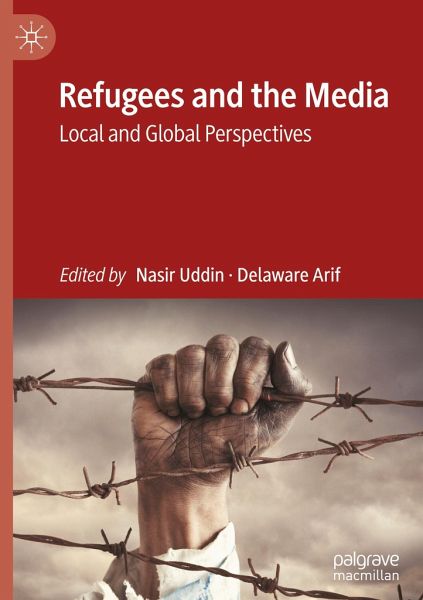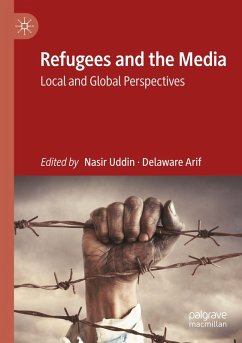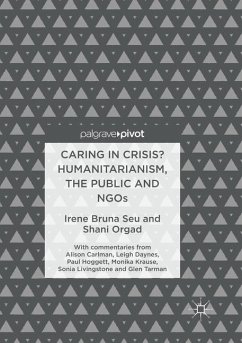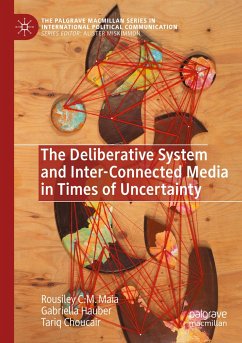
Refugees and the Media
Local and Global Perspectives
Herausgegeben: Uddin, Nasir; Arif, Delaware

PAYBACK Punkte
46 °P sammeln!
Media and refugees rhetorically live together and practically complement each other. Yet, it involves plenty of hidden political agendas and ethical issues in the (re)presentation of refugees in media. This collection raises questions: Should the media stand by refugees or maintain deliberate 'neutrality'? Should the media dehumanize the refugees further in their humanitarian conditions? Are the media entitled to publish photographs of refugees without informed consent? Should the media stand by the state being responsible for generating refugee crisis or should the state be accountable for re...
Media and refugees rhetorically live together and practically complement each other. Yet, it involves plenty of hidden political agendas and ethical issues in the (re)presentation of refugees in media. This collection raises questions: Should the media stand by refugees or maintain deliberate 'neutrality'? Should the media dehumanize the refugees further in their humanitarian conditions? Are the media entitled to publish photographs of refugees without informed consent? Should the media stand by the state being responsible for generating refugee crisis or should the state be accountable for rendering its people refugees? What effective roles can media play in redressing the refugee 'crisis' in the world? The book brings together scholars across disciplines and continents who reflect on the nexus between media and refugees in contexts around the world. It engages in cutting-edge methodological and theoretical discussions and challenges regarding the reciprocal engagement between media and refugees from both local and global perspectives.












